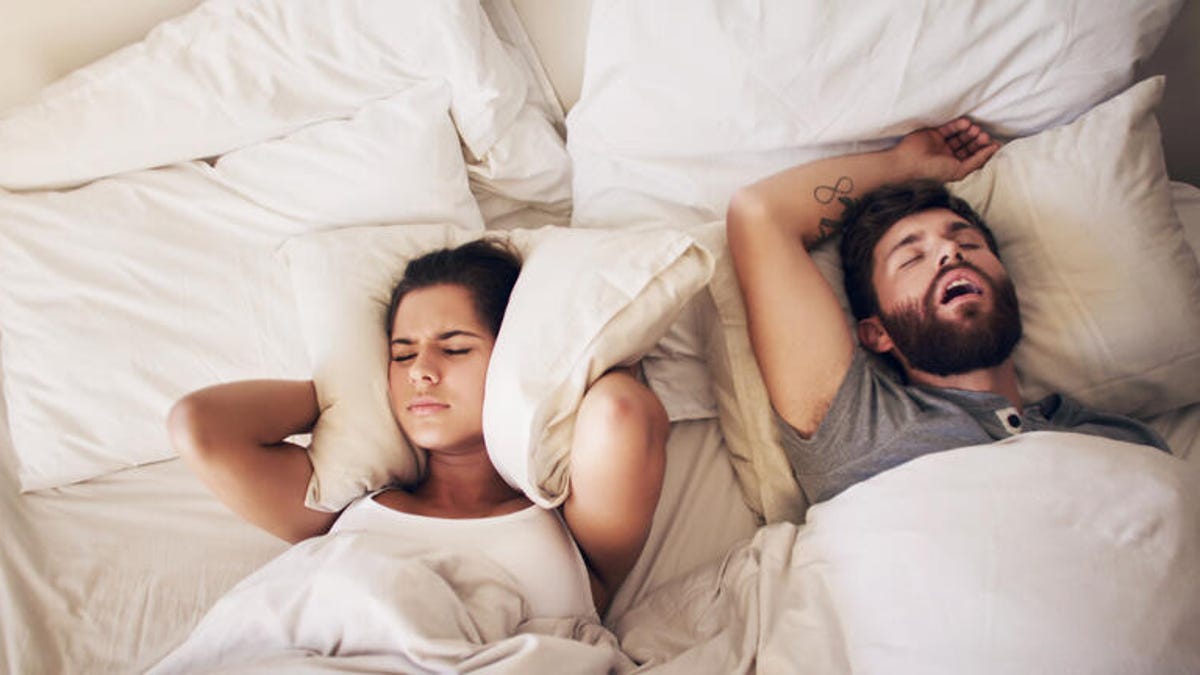How to fall back asleep when you wake up in the middle of the night
A doctor shares tips for drifting back to sleep when you're awake in the middle of the night.

Try these tips to fall back asleep faster when you wake up at night.
A full night's sleep is hard to come by, and there's nothing more frustrating than waking up in the middle of the night without going back to sleep easily. Sometimes the disruption is expected -- like if you have a baby or pets. Other times, you wake up for seemingly no reason. For me, stress is usually to blame. Sometimes I'll wake up at 3 a.m., my mind racing about something, and I can lie awake for hours before finally drifting off again.
If you can relate, keep reading below for insight on the best ways to fall back to sleep from Dr. Sujay Kansagra, MD and sleep health expert for Mattress Firm.
What causes you to wake up throughout the night?
The first step to remedying sleep problems is trying to figure out what's causing them in the first place. If your kids, your pets or noises outside your window are waking you up, then you can skip this step. But sometimes the things that wake us up aren't so obvious and require a bit more investigation -- sometimes with the help of medical professionals.
"All human beings have multiple awakenings at night that are normal. It is part of going through a full sleep cycle. When we sleep at night, we go into deep sleep and then emerge into lighter sleep every 90 minutes. When we're in lighter stages of sleep, it's not uncommon to have a full awakening," says Kansagra.
Although staying asleep all night is ideal, if you do wake up from time to time, it's not always a problem. But if you wake up and can't go back to sleep, it cuts into your overall sleep time and quality. Sometimes, health problems can be at play, like sleep disorders (including sleep apnea) and restless leg syndrome. "Other health issues can also cause awakenings such as [acid] reflux, arthritis pain and asthma just to name a few," Kansagra says.
Drinking too much caffeine during the day can impact your sleep later.
Why is it so hard to fall back asleep?
When falling back to sleep isn't easy, there are a few things that could be going on that you want to rule out. "The most common is insomnia amongst adults. Many adults become anxious and begin thinking excessively during these nighttime awakenings. This can lead to a cycle in which the bed becomes a place where you worry and think and not the place where you sleep," Kansagra says.
Besides insomnia and anxiety, something other potential culprits could be drinking too much caffeine or alcohol, smoking and poor "sleep hygiene" habits, according to Kansagra.
Tips for falling back asleep, from Kansagra
Seek medical help or therapy for insomnia:If you suspect you have insomnia, a sleep medicine physician or a psychologist can help you with a treatment plan. Be sure to rule out any potential health disorders with medical professionals before you try to self-diagnose or treat your problems.
Try "paradoxical intent":Dr. Kansagra recommends this cognitive behavioral therapy technique if you find yourself awake and worrying about falling back to sleep. "It's recommended that you think quietly about staying awake rather than trying to actively fall asleep. Be comfortable with being awake. This prevents you from getting excessively anxious about being awake and paradoxically, can help you fall back to sleep," he says.
Practice good sleep hygiene:Finally, remember that you can also better set yourself up for sleep success with your habits and sleep hygiene. "Sleep hygiene involves the behaviors and things in your environment that can help or hurt your sleep. This includes avoiding light from screens for 30 minutes prior to bed, avoiding caffeine in the afternoon or evening, avoiding alcohol at night and having a structured nighttime routine that is performed the same way and at the same time every single night leading up to bed," Kansagra says.

